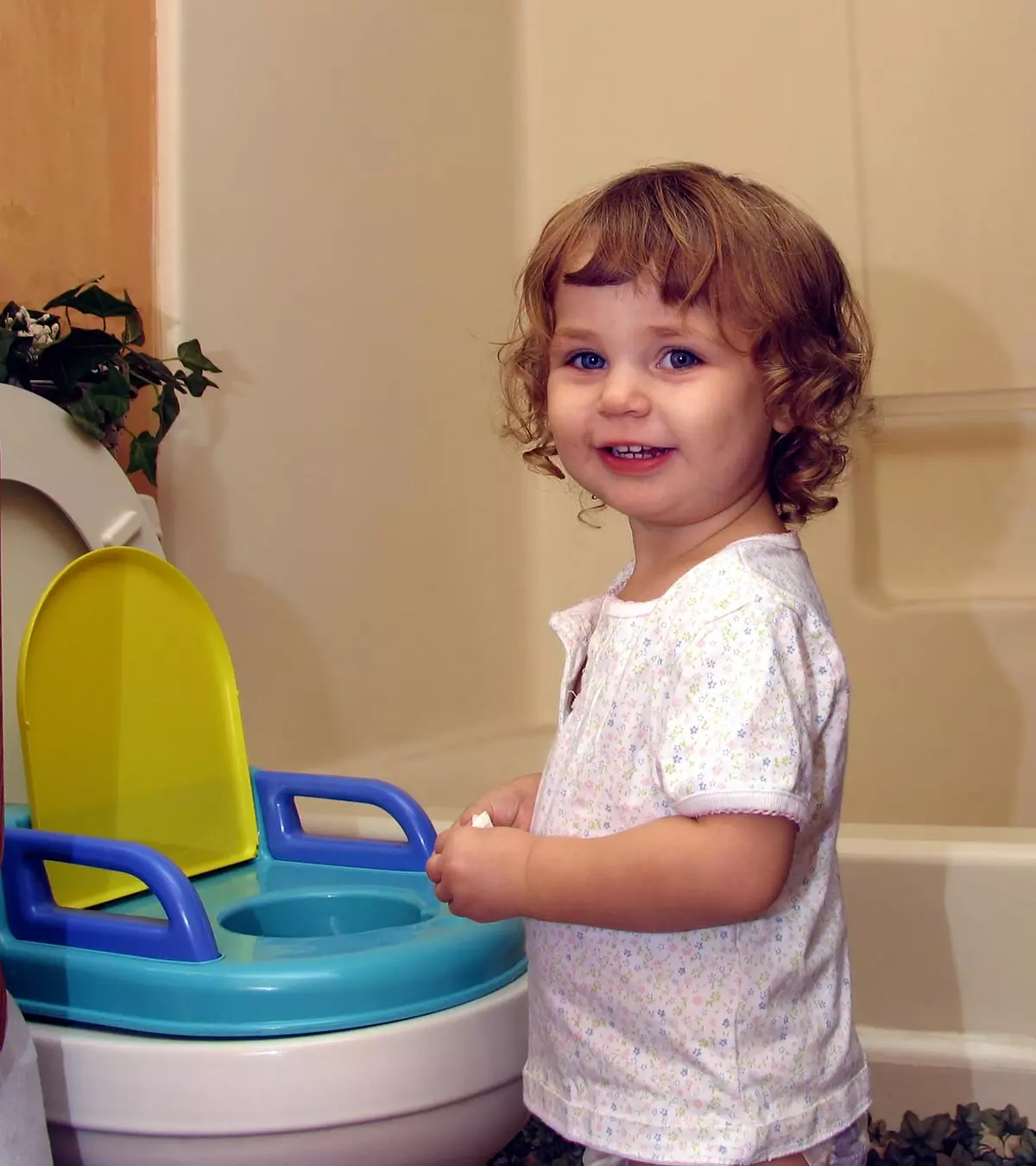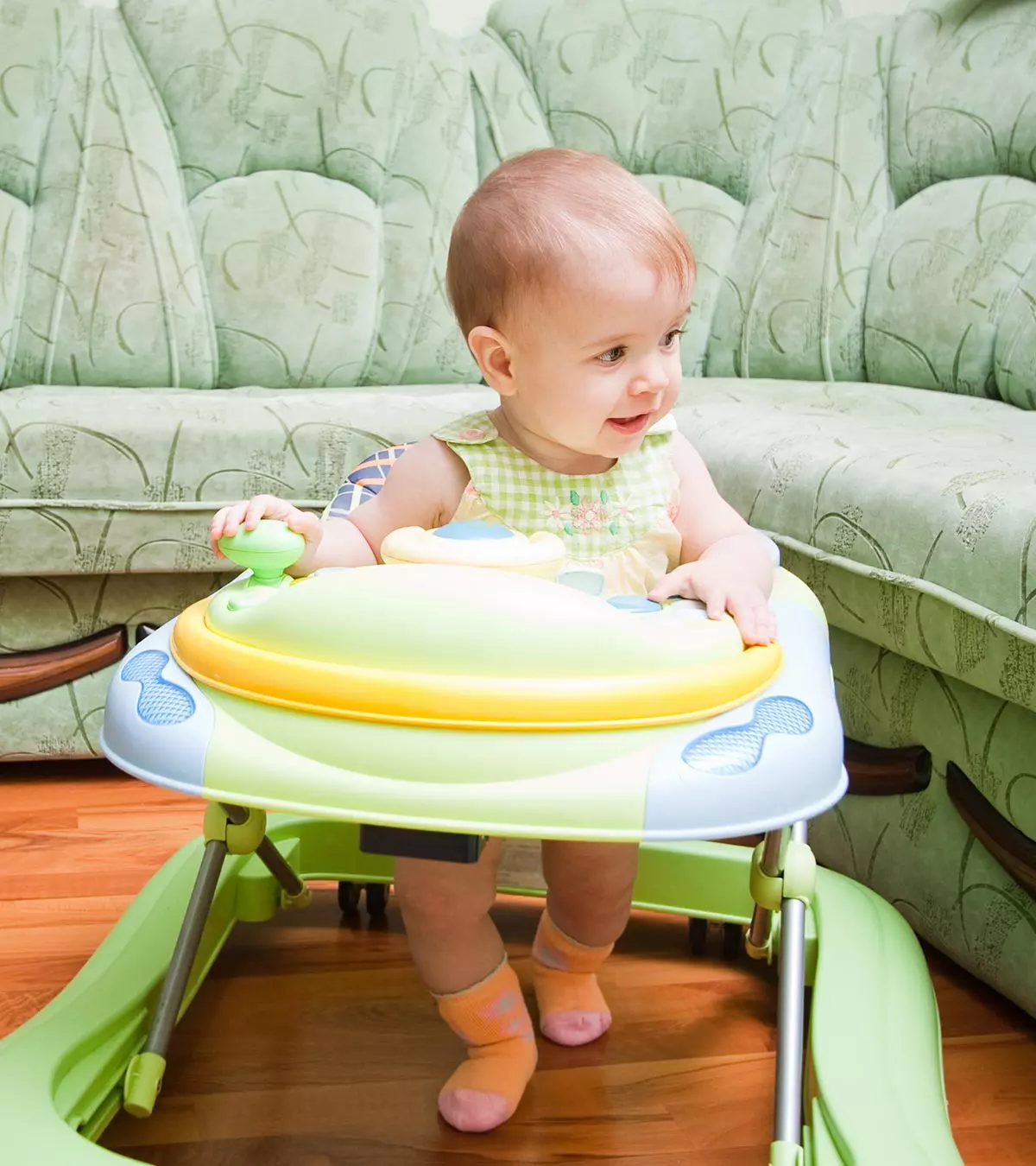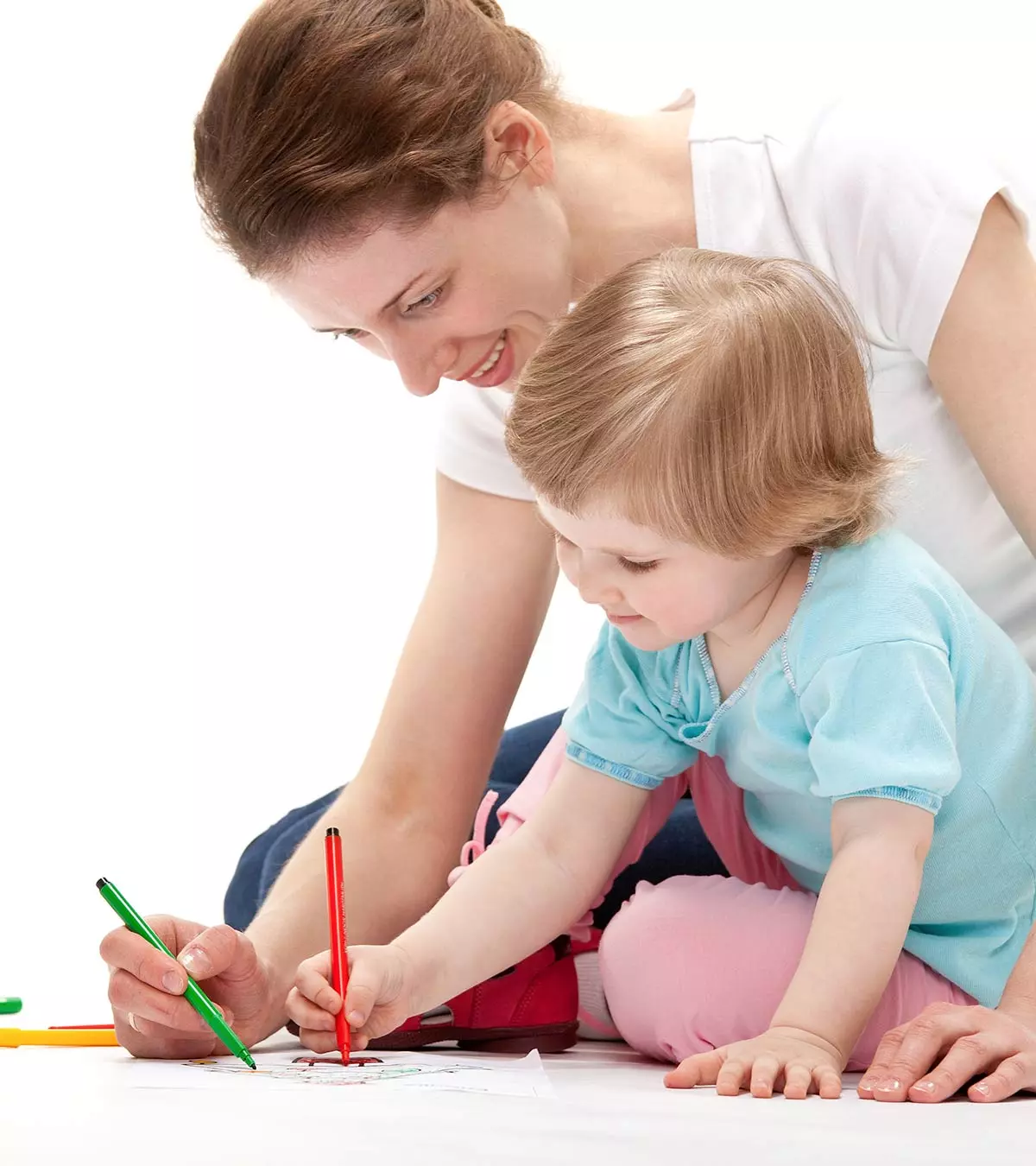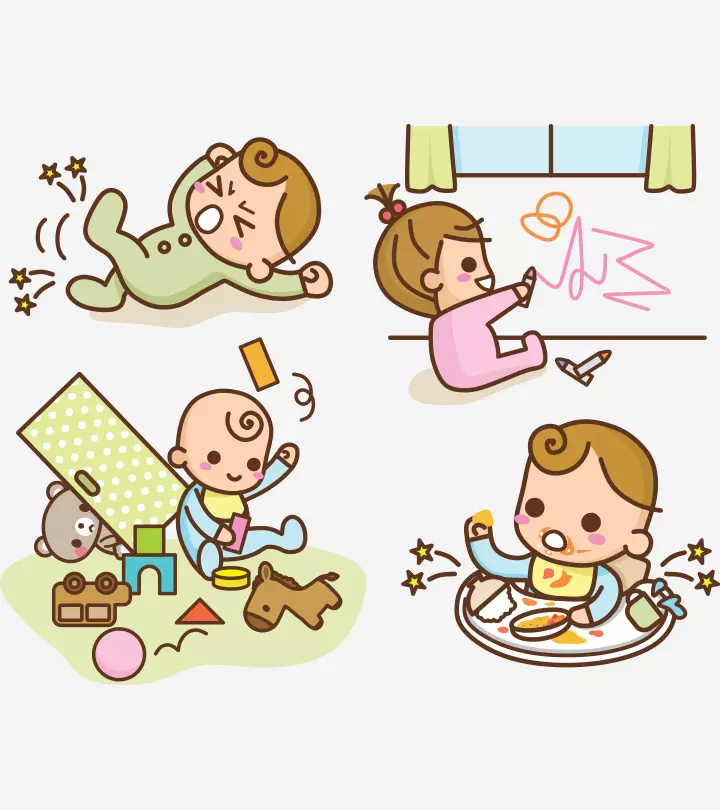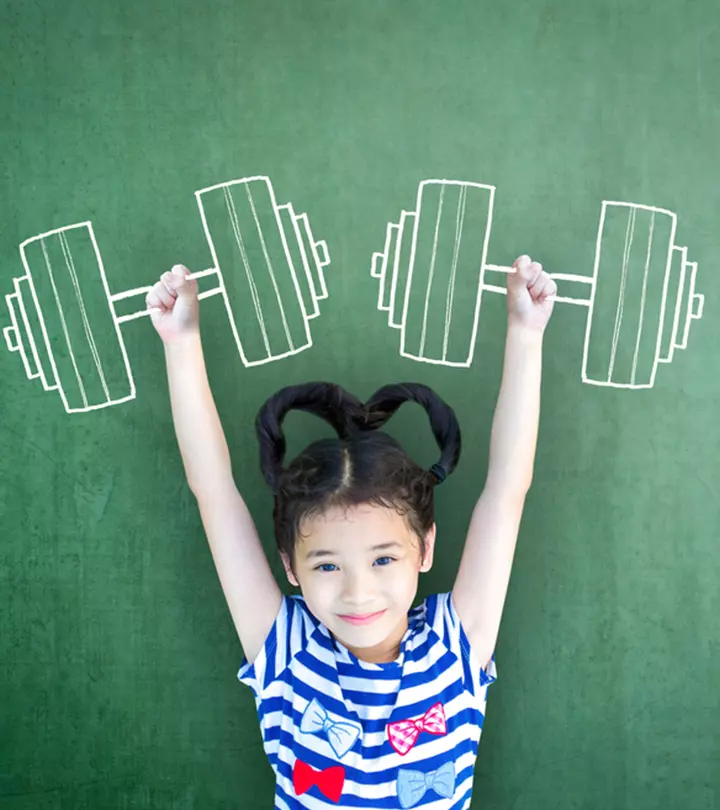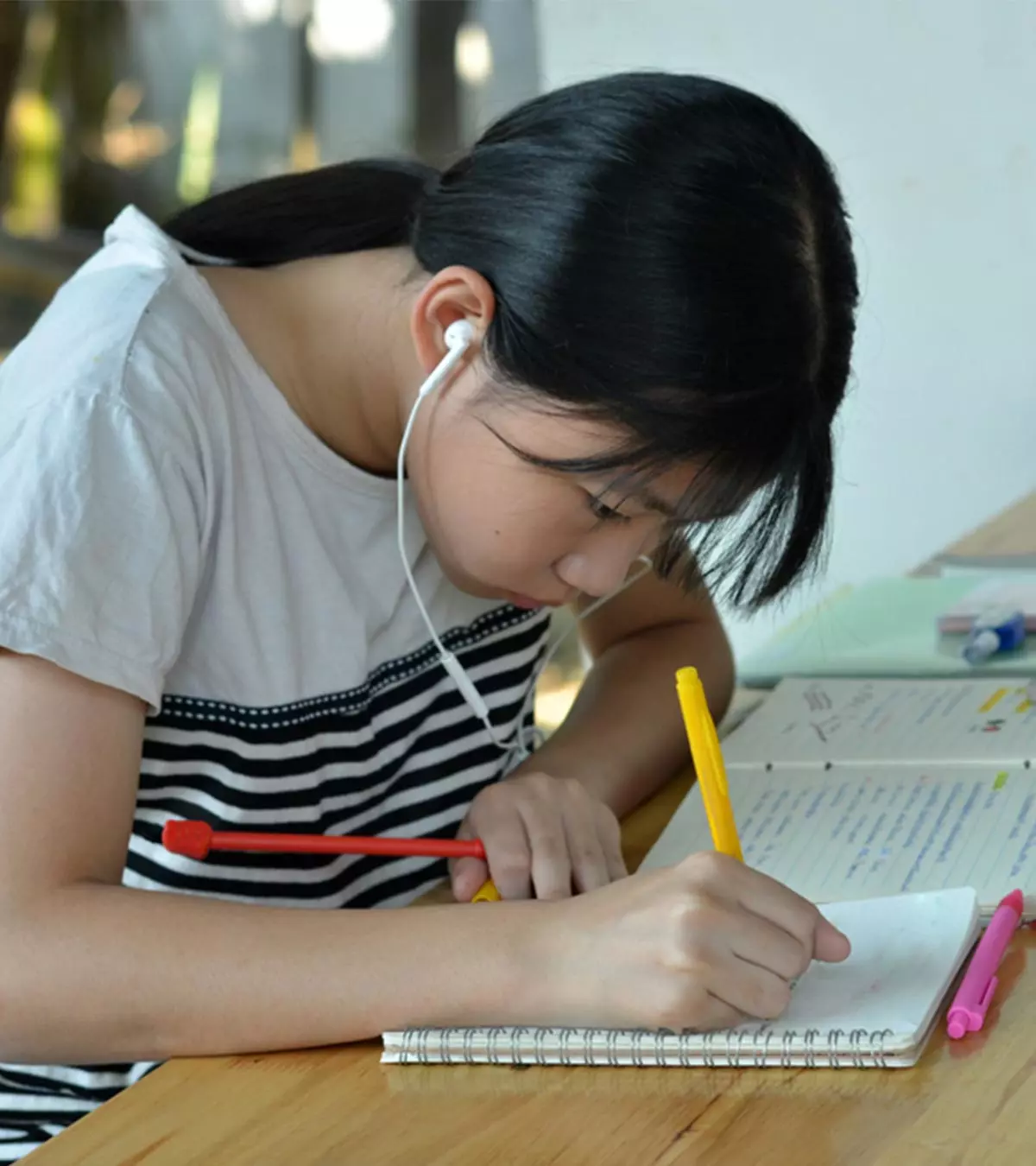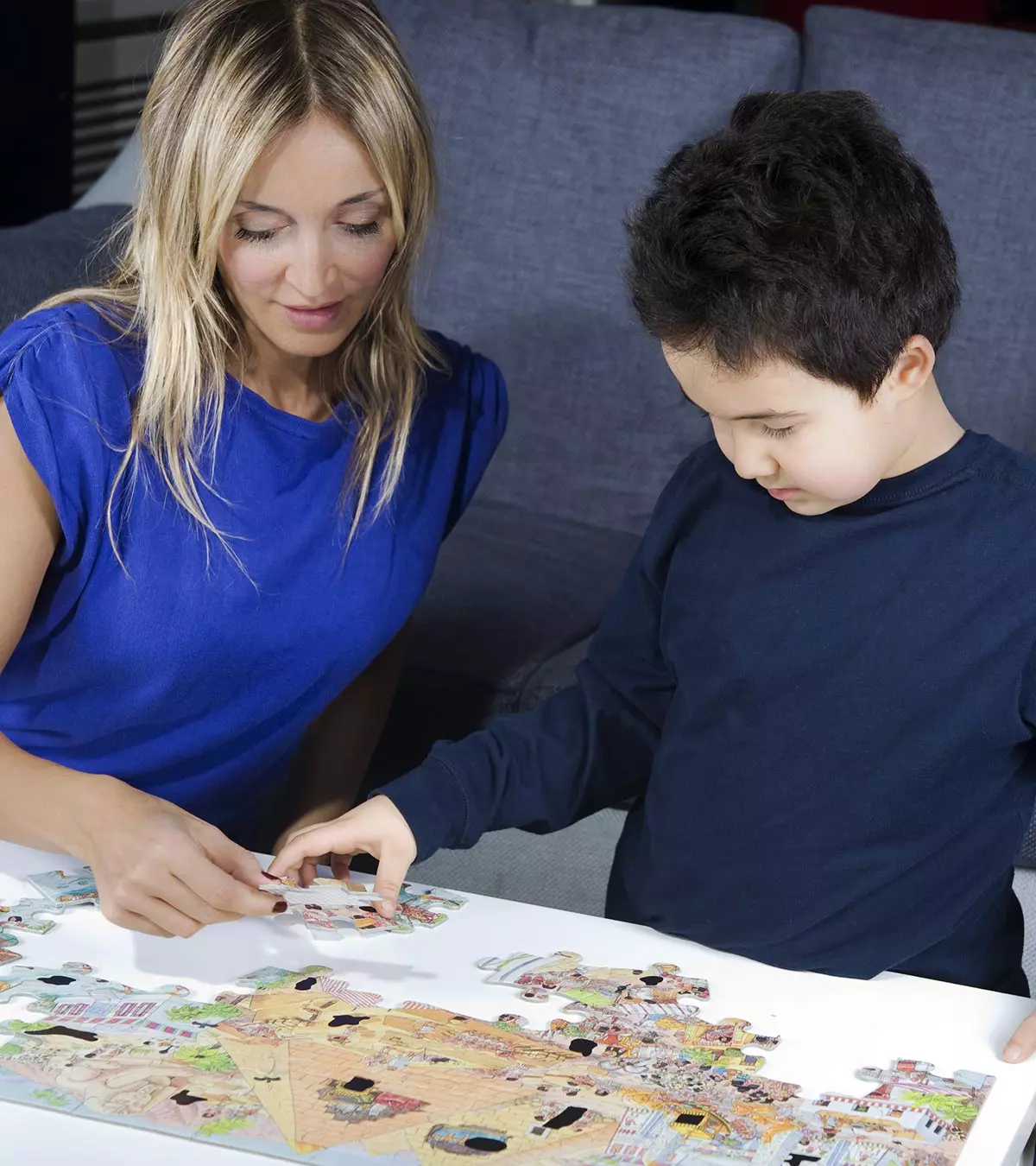
Image: ShutterStock
How to improve concentration in kids? Many parents ask this question when they notice their children struggling to stay focused and attentive, as these challenges can impact learning and daily activities. While attention varies from one child to another, difficulty in concentrating may also depend on several underlying factors such as stress or poor nutrition. To help your children improve their concentration, you should pay attention to the symptoms, understand the cause, and devise supportive strategies. You may also involve children in games and activities that boost focus and mindfulness. Keep reading the post to know more about why children struggle with concentration, things you can do to help them, and some interesting activities that improve focus.

Key Pointers
- Poor focus in children can be caused by lack of sleep, household stress, and poor nutrition.
- To improve children’s focus, reduce distractions, limit screen time, set achievable goals, and assign daily tasks.
- Puzzles are a great way to teach children persistence and develop spatial vocabulary and problem-solving skills.
- Encourage children by offering praise, break larger chores into smaller tasks, and seek help from school staff when needed.
Signs Of Poor Concentration In Children
If your kid is having attention and concentration difficulties, then you may notice some of these signs in their behavior (1):
- Does not sit in one place and gets distracted easily

- Loses things often and cannot stay organized
- Has difficulty in learning and remembering
- Cannot focus on homework
- Appears to be constantly daydreaming
- Poor handwriting compared to kids of the same age
- Sometimes aggressive or moody
- Displays poor gross motor skills like running or jumping
Causes For Lack Of Concentration In Kids
- Lack of enough sleep: Kids need eight to ten hours of sleep every day depending on their age. Discipline in maintaining healthy sleep habits is crucial because lack of sleep is a significant contributor to difficulty in concentrating. Careful attention to sleep patterns and causes of sleep disruption is an important part of management of attention difficulties.

- Familial stress: The environment at home is one major factor that may contribute to lack of concentration. Undue pressure on the child to perform well in their studies or hobbies, and frequent arguments and quarrels between parents can contribute to symptoms of inattention and distractibility. Ease their pressure to perform well, and avoid arguments in front of your child.
- Poor nutrition is a significant factor for lacking concentration. Diet high in sugar and fat without adequate nutrition will affect the child’s focusing skills. Eggs, whole-grain bread, milk, chicken, meat, salmon, and bacon are good food choices for a child. Avoid caffeine and energy drinks, and junk food.
Relaxation, balanced diet, and sleep can address the problem to an extent.
 Did you know?
Did you know?How To Improve Concentration In Children
Here are a few more ways you can try to make your child focused:
1. Observe your child:
- Sit away from your child and observe them when they are playing, talking or reading a book. Read their expressions, and try to understand what is holding their interest.
- Talk to their teacher for guidance. As the teacher works closely with the child, she should be able to give you some useful inputs.
- Be patient, sensible and understand your child instead of scolding them.
2. Minimize distractions:
Some children have significant difficulty filtering out noise. Therefore, give your child the right ambience to concentrate and limit distractions.
- If your child is doing some activity, do not talk to somebody or turn on the television while they are studying.
- As a parent, set an example for your child. Have a ‘quiet time’ when you read a book or do an activity while your child is studying. That will encourage them to do their work better.
3. Reduce screen time:

Instead of giving your child electronic games to play with, give them traditional, physical games (2).
- Buy them things that propel creativity and thinking while having fun.
- Allot a certain hour for your kid’s daily screen time when they can watch TV or the internet. In this way, the screen time will remain in check.
- Set an example and watch less television and be mindful of the amount of time you use mobile devices in front of your child.
4. Set goals:
Goal setting can be one method to help improve your child’s concentration.
- The goals need to be achievable.
- Divide their study time into various categories.
- Prepare a timetable for all their activities such as play time, study time, or other special interests.etc.
- Using positive reinforcements when they finish a specific set of tasks in a week or a month can serve as motivation.
5. Give daily responsibilities:
- Simple daily tasks that require order can help to improve attention.
- Depending on your child’s age, hand out responsibilities like setting the table, making a sandwich with you, sorting the cupboard and the like.
- If you have a collection of books, ask your kid to sort them in alphabetical order.
- Change the tasks on a regular basis so that your child does not lose interest.
6. Break bigger tasks into smaller ones:
Sometimes doing a task at one go is overwhelming for kids.
- It becomes easier for them when time-consuming tasks or difficult ones are divided into smaller ones. It can also help with their time-management skills.
- A child doesn’t feel burdened when they are doing something that takes less time. If they are reading a chapter and look lost, have them read it in pages or small paragraphs.
7. Appreciate and reward them:
- Children must feel motivated while doing a task.
- They need to feel accomplished when they complete a task. This helps children remain motivated and focussed to perform more and better.
- When you see your child improving and doing things better, give them praise.
8. Take the help of school counselors:
Seek help from school counselors. Check if your child’s school can tutor your child on improving their concentration, before and after school. You may also join the classes to get first-hand experience.
9. Get a professional evaluation:
- Book an appointment with a physician or therapist to evaluate the problem.
- Talking with a clinician can help you make sense of your child’s difficulties with attention and point you in the direction of solutions.
10. Keep them physically active:
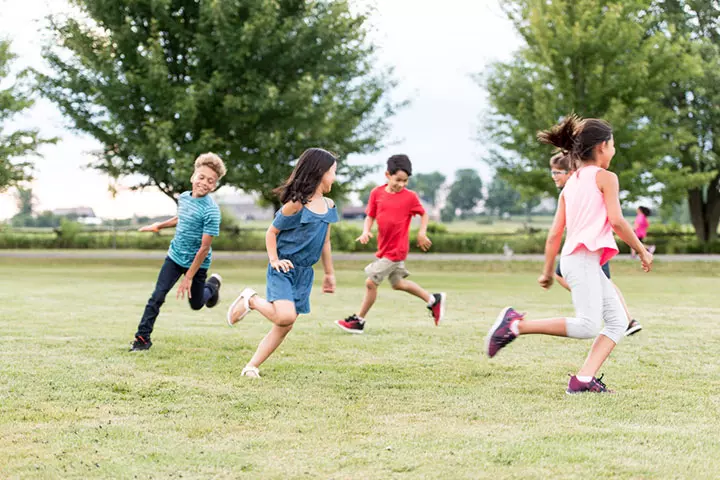
Research shows that physical activities, such as running, cycling, and playing football, are not only good for their body but also for their mind (3). It helps children focus better.
11. Practice simple breathing exercises:
An adequate amount of oxygen helps the brain function properly. Therefore, make your child do simple breathing exercises (4) or meditation. Practice the exercises together.
- They can do breathing exercises in a room, near a window, on the terrace or in the garden.
- Ask your kid to lie on their back and place a toy on the tummy. Now, ask them to breathe in deeply and raise the toy as high as they can without touching it. If the toy moves high, it means their lungs are filled with air.
12. Try some concentration-boosting yoga asanas:
You may try several yoga postures such as Tadasana, Vrikshasana, Ustrasana, that aid in improving overall concentration in kids. They also improve posture, relieve tension and relax the child.
13. Use fun activities to make them focus:
Your kid will pay attention when the subject spells fun.
- Spend the spare time and weekends playing fun-filled brain games.
- You could hand out some coloring sheets for your child to work on.
Scroll down for a few more ideas.
Activities and Games To Improve Concentration
You may try these activities and concentration games for kids:
1. Puzzles – Picture and words
A puzzle is a fantastic tool for improving concentration.
Picture puzzle
You will need:
A picture puzzle board game
How to play:
- Give your child pieces of picture puzzles
- Ask them to sort out pieces to complete the picture
- They have to find what’s missing and then place it in the proper place
Word Puzzle
You will need:
A word puzzle board game
How to play:
- Ask your child to form as many words as they can from the letters in the puzzle
- You may give them hints for each word
Puzzles keep a child engaged for a long time as they get involved in putting the pieces together or finding the words.
 Did you know?
Did you know?2. Statue:
This game helps the child learn how to stick to the same place and not get bored with it.
You will need:
A music system, or play music on your phone
How to play:
- Play the music
- Ask your kid to dance or play a character
- Stop the music and say “Statue”
- Your child has to hold the exact position they are in
- Freeze them for about 30 seconds and say “Release”
- Once you say “release” they can move and change their posture
- Repeat, but don’t tire your child
3. Tongue twisters:
The popular game helps children improve concentration as well as pronunciation skills. It stimulates their hearing memory while entertaining them.
You will need:
A piece of paper, or a blackboard
How to play:
- Write some tongue twisters on the blackboard or a piece of paper
- Give it to your child and ask them to read it aloud
- Then let them read it faster and faster
- As they go faster, they will falter
- The game is to see how long they can say it right
- Go ahead and say it together, this will make you laugh together with your kid
- Ask your child to come up with their own tongue twisters
- Here are a few tongue twisters— ‘She sells sea shells on the sea shore’, ‘A proper copper coffee pot’, ‘Red lorry, yellow lorry, red lorry, yellow lorry’
 Point to consider
Point to consider4. Missing numbers:
like this one can improve children’s concentration and boost memory retention in a fun and engaging way. This game can also enhance their numerical ability.
How to play:
- Start counting numbers in a sequence and miss out one purposefully
- Ask your child to shout out and tell you what you missed
- Let’s say, “8, 9, 10, 12”. In this case, your child should shout “11”
- Increase the level of difficulty slowly
5. Beat the clock:
Children are generally competitive by nature and love winning. This game increases their bandwidth to perform well and concentrate.
You will need:
- A stopwatch
- Things like toys, shoes, books, school bag, etc. It depends on the activity you choose.
How to play:
- Give any easy activity like putting their toys back into the box, keeping shoes in the right place, arranging books in the school bag
- Set up a timer — be realistic with that
- Ask them to finish the task before the time runs out
- This will make them work with improved attention.
6. Just a minute
Never undervalue the importance of small activities or games. Lots can be done in a minute, and that’s what you want to teach your child.
You will need:
A watch
How to play:
- Scatter around 20 balls in the room
- Let your child pick up as many balls as they can in a minute.
- Start the timer and stop it after a minute
- Let your kid count how many they have collected
“How many words can you write in a minute?” “How many things can you put back in their place?” are different ways of playing the game. You can come up with new ideas for playing one-minute.
7. Dot puzzles and mazes
Dot puzzles and mazes are so much fun that your child can do them for hours.
You will need:
A dot puzzle board. Alternatively, print a free dot puzzle from the internet
How to play:
- Give your child a dot picture and ask them to join the dots
- Let them use their imagination to connect the dots
- The game ends when they finish the dots and make the picture complete
8. Three cups
This game makes the child focus on the cups as you manipulate them.
You will need:
- Three cups
- One coin
How to play:
- Place the three cups upside-down
- Place a coin under one cup while your child watches
- Rapidly switch the cups and ask your child to tell under which cup the coin is.
9. What did I change?
It’s a great visual and concentration boosting game for kids.
You will need:
A tie, your earrings or anything else
How to play:
- Begin with yourself. Let your child take a look at you, and then ask them to close their eyes.
- Untie your tie, take off an earring, tie your hair or take off a shoe.
- Your child will then open their eyes and find out what you have changed.
10. Pattern and routine instructions
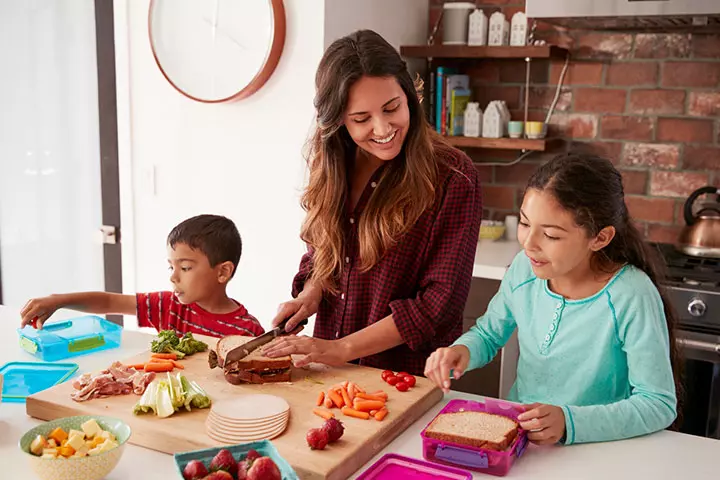
Routines can also be fun when played with a pattern.
How to play:
- Make a pattern with instructions.
- “Spread the butter on the toast first, then put the lettuce and sausages, then fold the bread” or
- “Put your books into the bag first, then keep your shoes away and finally wash your hands.”
- If you have more than one kid at home, you can make them compete on who does it right at the shortest possible time
Frequently Asked Questions
1. Which supplements help with focus and concentration?
Nutritional supplements of protein, vitamin B complex, zinc, iron, and calcium can help improve the overall brain and cognitive functions (5).
2. Does vitamin D help with concentration?
Considering vitamin D deficiency is one of the common causes of brain fog, its supplementation may help improve concentration (6).
3. Is lack of concentration a disorder?
A lack of concentration can be a symptom of certain disorders, such as attention deficit hyperactivity disorder (ADHD), depression, anxiety, and others (7). However, it’s also important to note that a lack of concentration can have many other causes, such as poor sleeping habits, unhealthy diet, excessive screen time, and stress. Therefore, it is recommended to consult a healthcare professional to determine the underlying cause and treatment.
Poor sleep, nutritional deficiencies, and stress are the common causes of lack of concentration in children. Poor concentration can also affect a child’s academic performance and interfere with their ability to do daily tasks. This condition may bother the child and parents alike, and working as a team can resolve your worry about how to improve concentration in kids. You may try to understand your child’s issues and extend support, minimize distractions, reduce screen time, and set realistic and achievable goals for your child to help them focus. Encourage them to try simple activities, such as dot puzzles and mazes, or consider exploring brain gym exercises for kids or brain games for kids for further improvement.
Infographic: How To Improve Concentration In Children?
A little restlessness is typical in children but if their inability to focus affects their studies, health, and daily life, it can hinder their overall development. So help your children focus by assisting them in adapting a few simple yet effective tips. Keep this infographic handy to enhance your little one’s concentration. Illustration: Momjunction Design Team
Illustration: How To Improve Concentration In Kids?

Image: Stable Diffusion/MomJunction Design Team
Learn how to improve your child’s concentration in just 3 easy steps! Get tips on how to help your child focus and stay on task. Empower your child’s learning journey today!
References
- Stephen P. Becker et al.; (2014); The Child Concentration Inventory (CCI): Initial Validation of a Child Self-Report Measure of Sluggish Cognitive Tempo.
https://www.researchgate.net/publication/269114068_The_Child_Concentration_Inventory_CCI_Initial_Validation_of_a_Child_Self-Report_Measure_of_Sluggish_Cognitive_Tempo - How Phones Ruin Concentration.
https://childmind.org/article/kids-shouldnt-use-phones-during-homework/ - Exercise in schools can help children pay attention in the classroom.
https://www.abdn.ac.uk/news/3600/ - Linda J Harrison et al.; (2004); Sahaja Yoga Meditation as a Family Treatment Programme for Children with Attention Deficit-Hyperactivity Disorder.
https://journals.sagepub.com/doi/abs/10.1177/1359104504046155 - Patrick Ip et al.; (2017); Impact of nutritional supplements on cognitive development of children in developing countries: A meta-analysis.
https://www.ncbi.nlm.nih.gov/pmc/articles/PMC5587553/ - Brain fog.
https://sanfrancisconeuropsychology.org/blog/brain-fog/ - Trouble paying attention.
https://childmind.org/article/not-all-attention-problems-are-adhd/ - Five things children gain from puzzle play.
https://illinoisearlylearning.org/blogs/growing/puzzle-play/#:~:text=Fine%20motor%20and%20hand%2Deye,move%20puzzle%20pieces%20with%20precision - Assessment of Attention in Preschoolers
https://www.ncbi.nlm.nih.gov/pmc/articles/PMC3511648/
Community Experiences
Join the conversation and become a part of our nurturing community! Share your stories, experiences, and insights to connect with fellow parents.
Read full bio of Claudia M. Gold
Read full bio of Sagari Gongala
Read full bio of Harshita Makvana
Read full bio of Apoorva K







